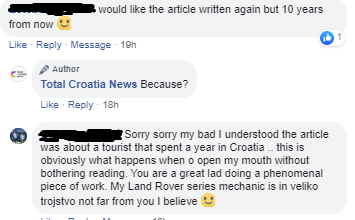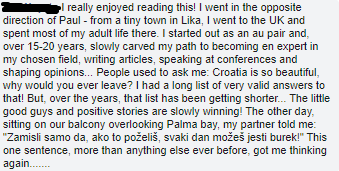A (Vaccine) Remedy against the Default Negativity Virus in Croatia
February 7, 2021 - A fountain of Dutch positivity in rural Karlovac county has developed a vaccine to combat the lethal default negativity in Croatia. Meet the ten steps.
It all started 6 days ago when I was looking around for a happy story to balance the misery of protests, corona and economic gloom. I chanced upon an article by one of the happiest people I know in Croatia, Dutchman Rene Pronk, who has been living in rural Croatia for 8 years. He had written a really nice piece called 20 Reasons Why Croatia is the Best Place for Living. A nice, positive story which was quick and easy for me to write, would generate traffic for sure, but mostly would sprinkle some specks of happiness in these less than happy times.
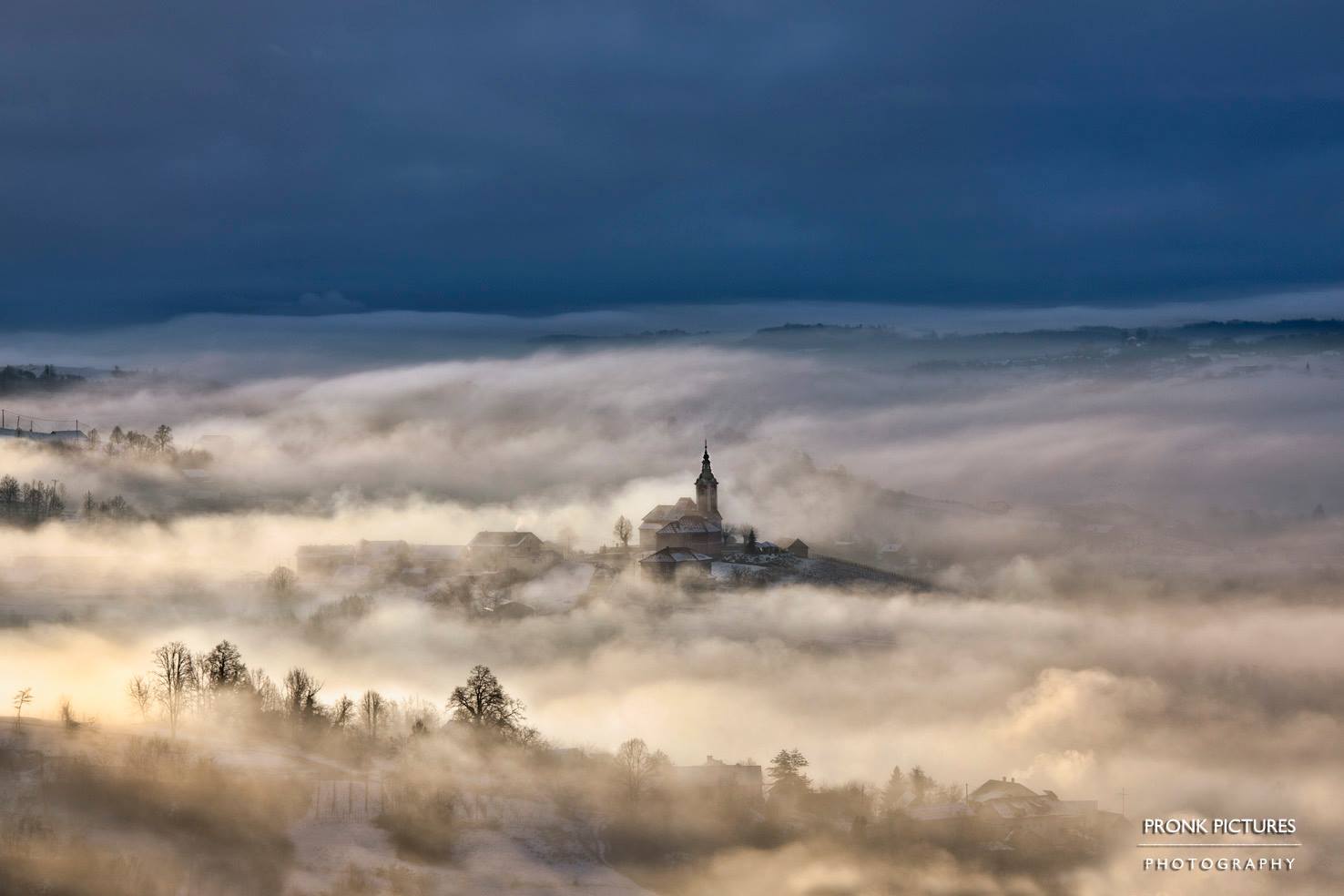
At least that was the plan...
The negative voices were first out of the blocks as usual, so much so that it all merited a follow-up article - What Happens When a Foreigner Writes Positively about Living in Croatia?
This merited yet more dismissive remarks, including an interesting discussion on how there were no foreigners moving to Croatia to work in roles other than top management in Croatian companies. The foreign writers writing for TCN didn't qualify for some reason, as the owner is a foreigner, at which point young Rimac popped into the comments to mention that he employs more than 100 foreigners in his Croatian company, for example.

The point of the second article was to highlight a beautiful response from Rene when I asked him about what he was running from in his home country, how many millions he had, and which secret service he was working for (all labels and assumptions foreigners are subjected to here). His lovely response can be read in the link above, but as part of it, he mentioned that he had developed a vaccine against default negativity in Croatia.
There were several comments asking to know more about the vaccine against default negativity, including this message all the way from Australia:
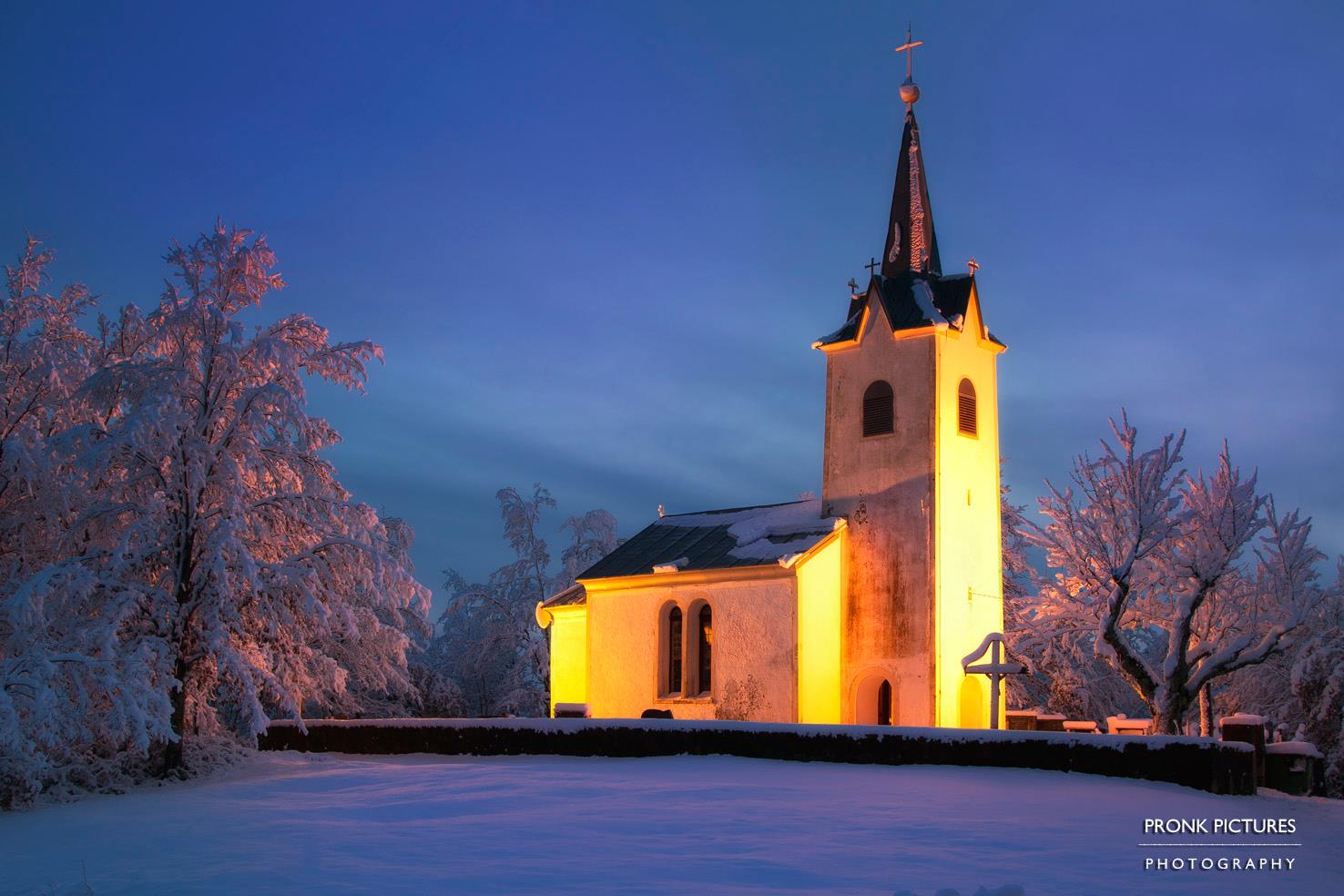
Hi Paul,
I just want to check if you're the guy living in Croatia. If so, I read your article - What Happens When a Foreigner Writes Positively about Living in Croatia. You made me realise something about myself. I'm an Australian Croatian, meaning I'm first generation Australian born of both parents being born in Croatia and as far as I know 100% Croatian ancestory. What I realised about myself is that I too have developed the negativity curse. I'll call it a curse. If the positivity vaccine is able to be sent to me I would be eternally grateful. Ok, I know it's not real, but I wish it was that easy. My father is negative and so was his mother yet his father, my Dida, was the most beautiful man I've ever known. Do you know much more about the negativity in Croatians that you can write about? I have a new interest in this subject now that I'm aware that is not just me. To be honest, it sucks.
Take care.
Glass half empty ?.

So I asked Rene if he would send me some of the vaccine against default negativity. This is what came back:
When we settled in Croatia in the Summer of 2013 I quickly noticed that it wasn't all about beautiful beaches, great waterfalls, friendly people and clean air. Something was obviously disturbing me but I could not instantly figure out what it was. My wife and I have lived in many different countries all over the planet so it wasn't really the difficulty of adjusting to a new home; neither were we homesick.
I thought it would pass. After all, Croatia was still coping with a big financial crisis that hit so many other countries all over the world as well. But soon I learned that the air that I was breathing had a stubbornly thick substance that was all around; a virus that affected many; negativity.

I am not trying to appear here as some positivity guru. Just for your information, I suffered from severe depression for more than seven years in my life. I overcame it and decided that I did not want to get depressed again in Croatia, but neither do I want to fake some optimism that I do not really possess.
I am very serious when I say that Croatia is among one of the best places to live on this planet. Making a living here is of course of a different nature and a quite more complex story for most Croats that do not have access to the right connections. Can life be happy and good in beautiful Croatia?
Is there something we can do to get rid of the default negativity virus? Is there a vaccine? Yes and no. No, there is not a simple and easy way one-time injection. But yes, we can really boost our immune system with some of the ingredients I have written here. And if more people try to practice them Croatia will one day be freed of a virus worse than what we are facing now.
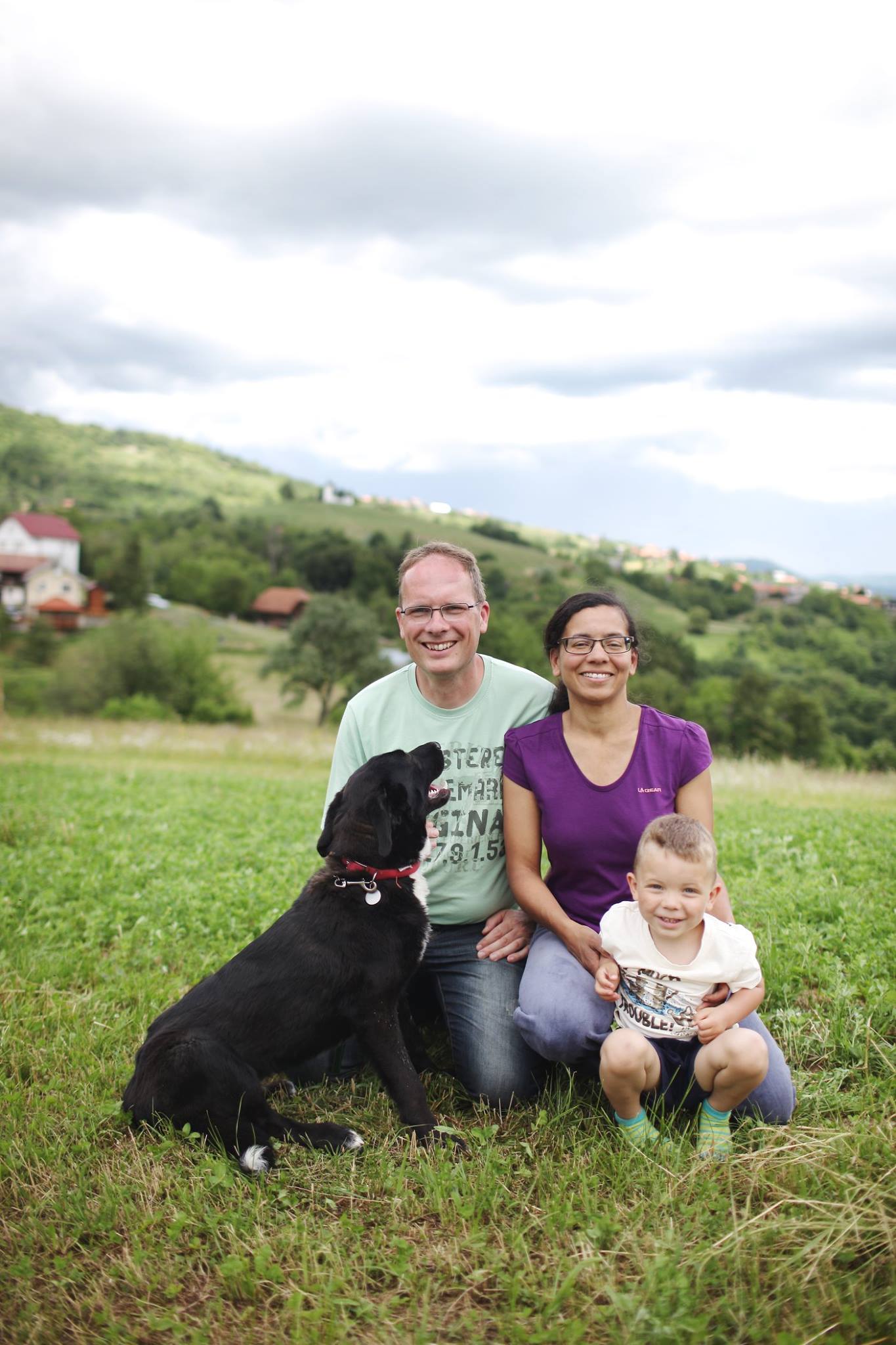
1. Be a fountain, not a sponge
There is a daily decision that we all have to make: Do I want to copy-paste my environment and absorb all the negativity of the media and bad news? Do I want to join the daily number of thousands of government cursors in the coffee bars? Do all my negative and cynical comments on social media contribute to my happiness and that of somebody else? Do I really feel better by judging other people? Frequently expressing ourselves in a negative way about circumstances and others means that we have no connection with the persons we really are. We then choose to be sponges instead of fountains. I realize that the word fountain may cause some question marks for those familiar with the hobbies of Zagreb's mayor. But what I mean is that we need to choose daily either to influence our outside world positively by what we have stored up inside of us or otherwise absorbing all the negativity that goes on around us. Never let circumstances dictate the dreams in our hearts.
2. Exchange fatalism for opportunities
Part of the negativity default in Croatia is the fatalism that unfortunately is deeply rooted in many of the religious mindsets of the people here. Maybe even dating back to the days when parts of Croatia were for centuries under Islamic rule. When something bad happened, it was Gods/Allah's will and there is nothing we can do about it. Well, I see things rather from a different angle. What if we try to make our last failure a diving board for our next success, learn from our mistakes and purify our dreams and plans? If there is a God, wouldn't he be willing to bless instead of making life miserable for us (just suggesting)? Change your parameters on religion and this unproductive fatalism and become an opportunity seeker. What worked against Croatia for so many years can be a huge opportunity to work for Croatia in the years to come.
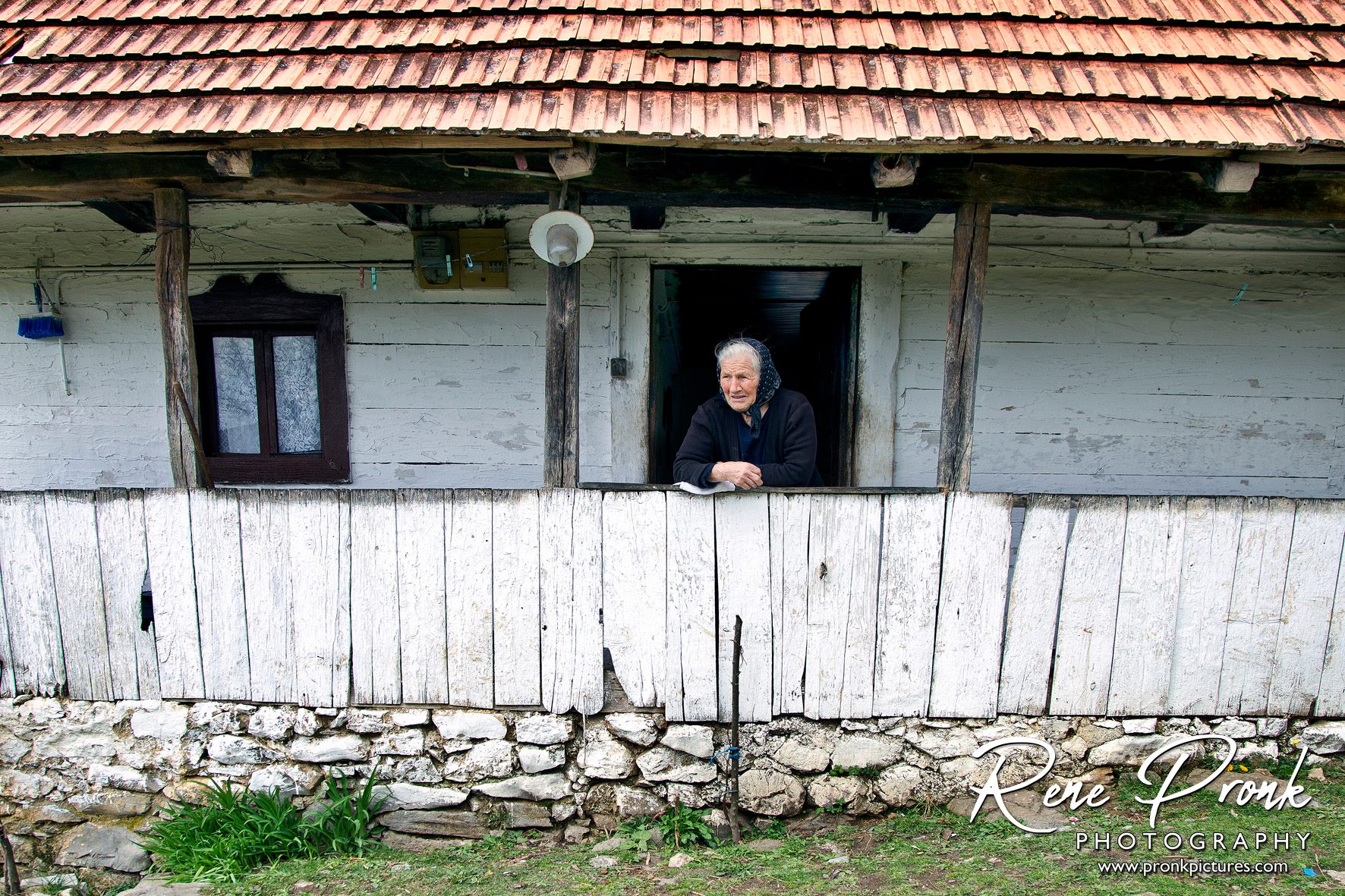
3. Happiness makes us rich
The overall thinking in Croatia is that the foreigner has big bags of money and must, by definition, be extremely happy. Well, I have met some extremely rich Croats with boats in several ports and houses on pretty mouthwatering locations and yet they are not particularly appealing as happy and joyful people to me. In fact, they are pretty unhappy and perhaps they think that their next purchase or career move will bring the joy they so much long for.
I spend much of my time among the "poor" and lonely in some of the most depressing and deserted places of rural Croatia. I drink terrible Turkish coffee in their houses and try to survive some of the most mortal homemade "rakijas". I listen over and over to their stories. These people share their struggles, their hugs and give me some of their eggs and veggies. Rich, very rich people mostly do not have such a habit. In the best case, they support as distant philanthropists. Now, consider, who is really happier?
Those who want to add and gain more and more to their short-lived lives? Or those who can easily let go of things and have time to share and care? Who is really rich in this world?
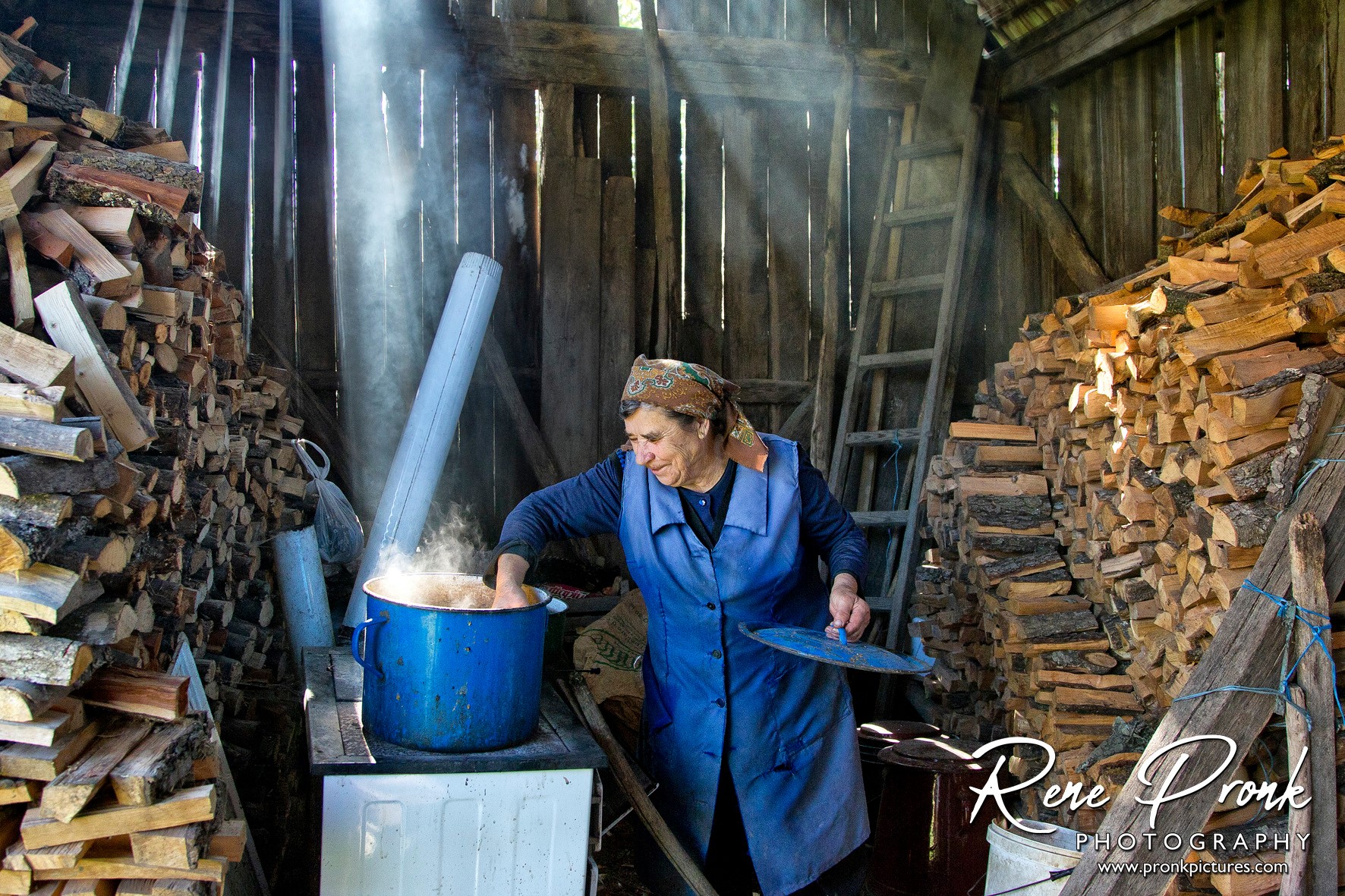
4. I want my neighbor to succeed
One of the worst things in especially rural Croatia is the overall attitude followed by many 'I don't want my neighbor to succeed'. It is deeply rooted in this country and it found its way all the way to the parliament. One particular political party was even selling t-shirts that some other political party is nothing but a bunch of thieves. Not really a very constructive way of expressing your positive plans for a better Croatia. Networking and co-working are subjects best to be avoided, it seems.
We came across that attitude in a very unpleasant way when we started our rural tourism projects in 2004. We learned the hard way what "blufiranje" really means and when personal threats become very serious. It is time for the tide to turn and learn that if we start blessing (speaking positively) our neighbor, countless blessings (positive things) will come to us. That is an unwritten law in the universe really worth trying. When we are convinced of your own positive dreams and plans there is no need to blame and curse neighbors anymore. Working together makes 1 + 1 = 3
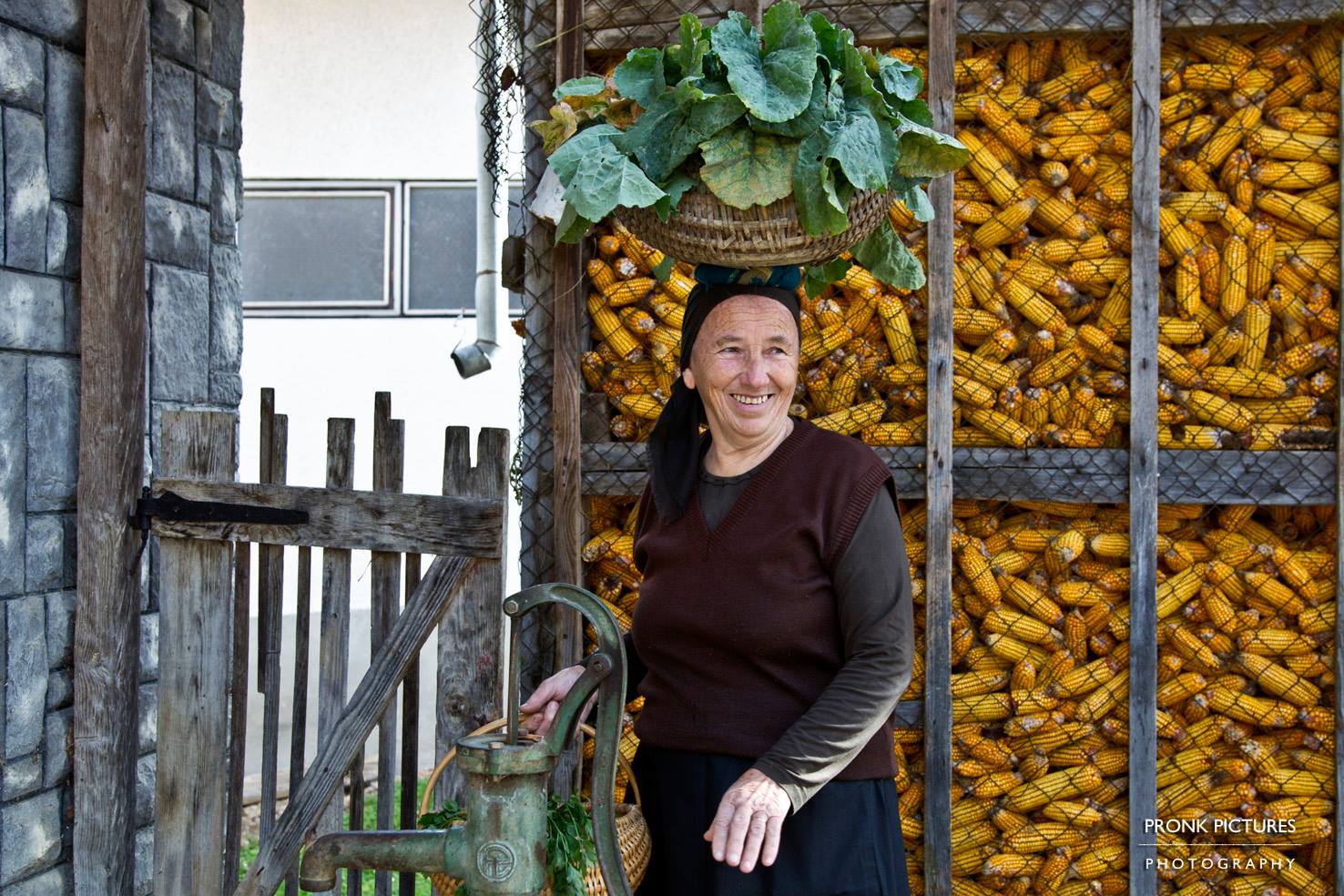
5. There is beauty in everything
Everything waits to be noticed. The biggest problem we are facing in the world right now is not that we are in lockdowns but that the biggest part of humanity is locked up within themselves. Most of the things we do as people we do it with unawareness. If we are not aware we are not present in the "now". And "now", today is the right time to change our life.
As a photographer, I am an opportunity seeker. Even in sometimes seemingly ugly situations, a wonderful picture can be born if the right light falls on it. Just be present and accept difficult and unpleasant situations. Wait a little for the right light and we will see things differently. Create a mental picture and begin to believe in it. This is for instance how I look at Karlovac. It was once one of the most beautiful cities in Croatia. Now it is in a very deplorable state. But the eyes of a believer still see the beauty that once was and hopefully will be again.
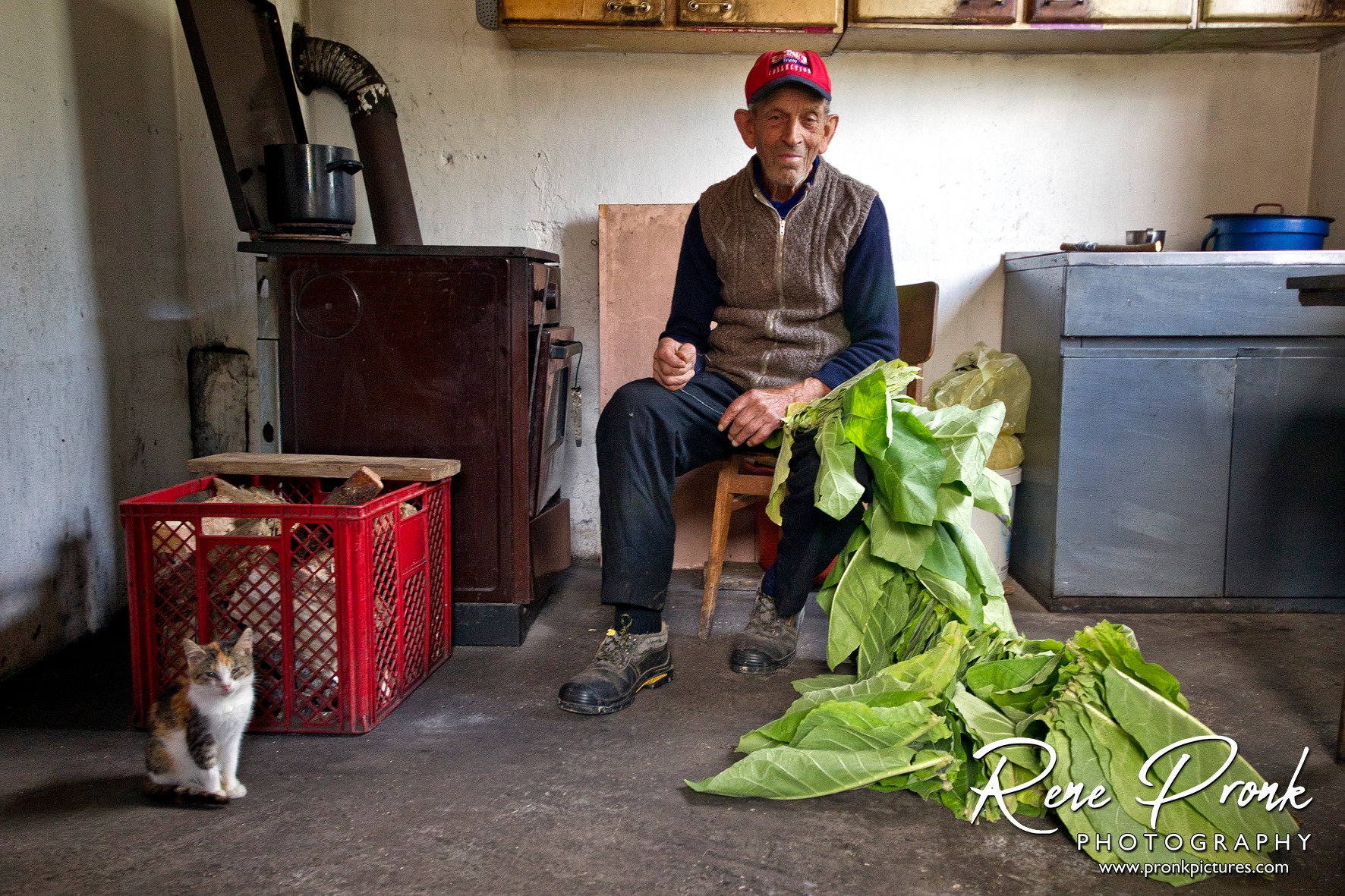
6. Try to smile in Karlovac
Ever tried doing your shopping in the city where nobody smiles??? I like to give compliments to those who think their jobs suck and their payment is an understatement for just "surviving" money. I smile at the lady behind the cash register in Konzum. I do give a compliment to that lady who is cleaning the public toilet and leave her some money for a free coffee. Remember, people will soon forget what you have said but your attitude towards them can make a lasting impression. Drop many moments of friendliness in your everyday life in Croatia (especially in Karlovac) and you will be happier too!
7. Find the gold in the rock
I met Milena 8 years ago in a remote village between Karlovac and Slunj. She is of Serb origin and a minority in Croatia. That is also how she felt, how she was treated and how she behaved. Her parents were very poor and she left school without any papers. When I first met her she said that life just did not work out for her and that she was living on the devil's bud. At that moment a beautiful rainbow appeared in the sky. I told her that even the devil's bud had some surprise in store. From that day on things slowly started changing.
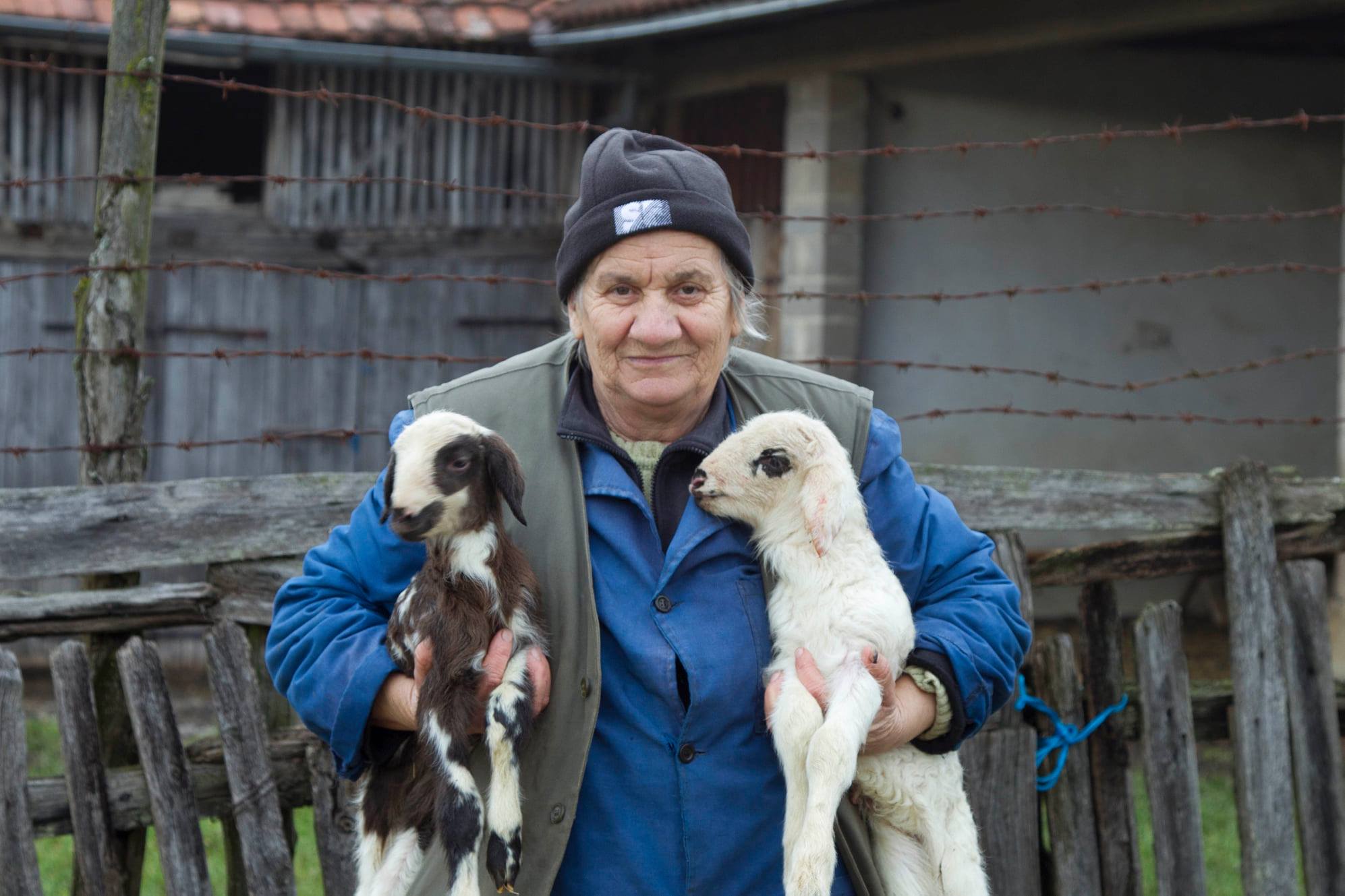
It is extremely hard to try to get people out of poverty. It is not just the circumstances that need a reset but also the mindset of those in poverty and the problem of the absence of friends and coaches. I offered Milena a job as a volunteer in our foundation. She did many of our translations and later on, she ran a small souvenir shop that we started in Slunj. She passed her driver's licence and we were able through the help of people in the Netherlands to improve her living conditions and get her a small car. I told her that I believed in her and so many coaching and buddy conversations were shared between us. Nowadays she is the manager of several stores as she works for a foreign investor. She runs five of his businesses and she does it well.
The point is... If you feel down because of your circumstances start to dig for gold in the rocks. Be a buddy and coach for someone else who is in much worse circumstances than you are in. It is so easy to hit ourselves against the rocks and even stumble or call the rocks impossible to surrender. But there is gold in many people. There is gold in many Croats. It takes a man or woman of good faith and perseverance to bring the gold to the surface.
8. There is still something good about all the bureaucracy
Now we are getting curious.... Is there anything possibly positive about the paper monster in Croatia? Yes, there is. Thinking back on my life in the Netherlands going to a tax office and trying to meet a real person in that office was a mission impossible. Everything was digitalized. One could only reach them by phone or by mail. There was no such thing as personal contact or making reference to one of the workers that dealt with my case. Not so in Croatia. You can just walk into their offices and if you are lucky and curious even get to know how much tax your next-door neighbor needs to pay this year as papers are always all over the place. My point is very simple. "For every disadvantage, there is an advantage" (Johan Cruijff)

9. Start a garden
One of the greatest things in Croatia is the "domaci" mentality. Croats like homemade and homegrown stuff. So why not indulge ourselves and join that mentality. It is a great antidote for dark and doomy days in Croatia. For seeing our own flowers and veggies growing makes us thankful and patient. It teaches us to adjust to the rhythms of the season. I start my daily routine in my garden every morning when I wake up. Just see what is growing and take on that grateful attitude. Never take it for granted.
10. Positivity attracts the right people and the right opportunities.
Do not try to convince people whose mindset is set to misunderstanding you. Do not try too hard to let the "die-hard negativist" think differently. Better ignore them or make them smile. If people think Croatia sucks, just let them think and talk that way. They are probably looking for an excuse for their lack of creativity and their own personal failure. The more positive we will speak, think and act the more positive people and circumstances we will attract. In the end, the wrong people will leave our lives as they cannot stand the atmosphere around us. Eventually, we will find ourselves surrounded by the right and positive people who can really contribute to our goals and dreams and to a better and more positive Croatia.
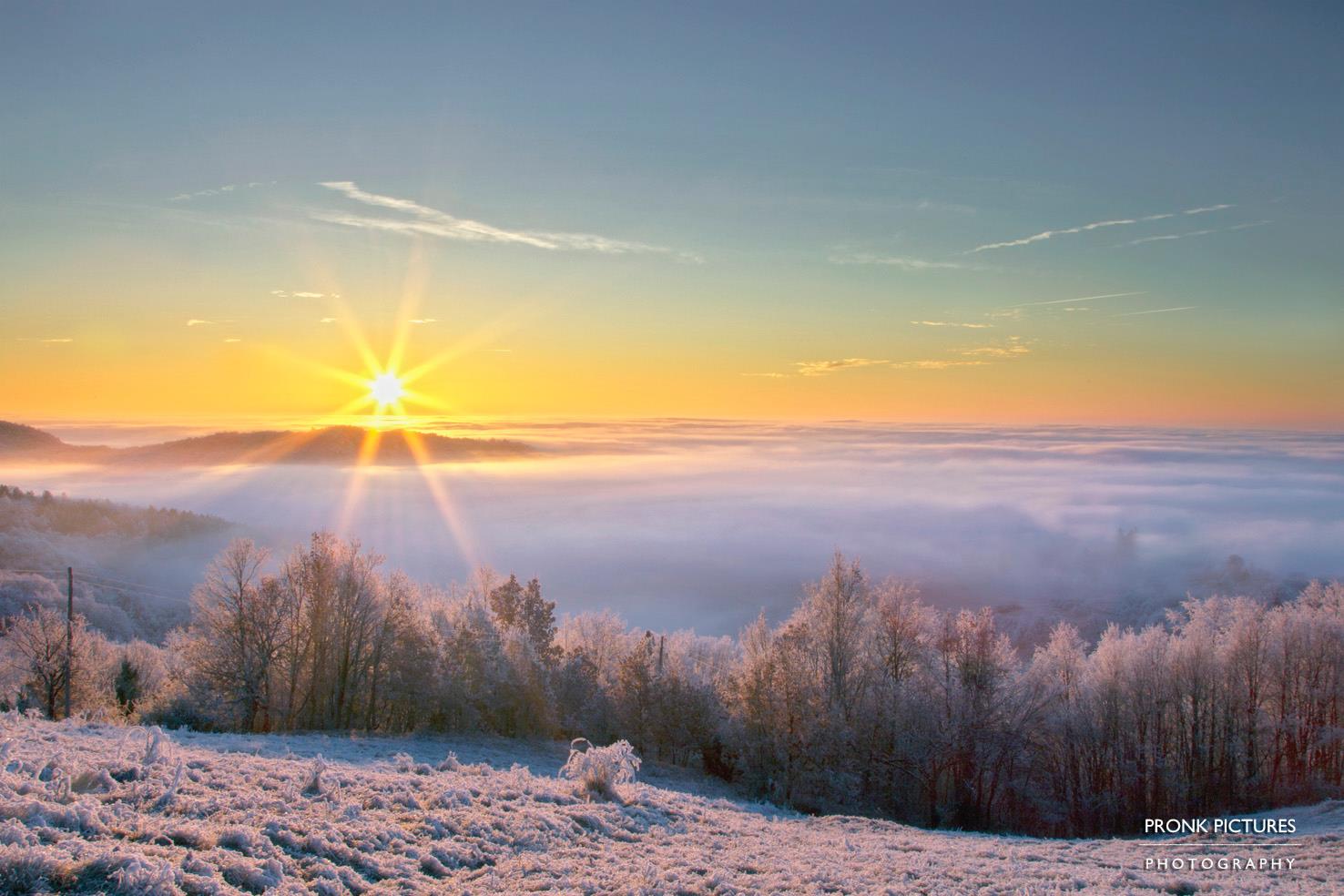
Now enjoy another positive experience - Rene's wonderful photography documenting the beauty of rural Croatia.
Traditional Values or Perpetuating Division? Shaping the Young Croatian Mindset
I love Dalmatia. It really is Paradise on Earth, and I genuinely believe that living there for 13 years has made me a better person.
It has certainly made me a more patient one...
Having lived there for so long, and coming with my Western mentality, it has also frustrated me more than any other place I have ever lived. It took me years and years to finally realise that there was a reason certain things, which were so obvious to this more 'advanced' Westerner, did not exist in Dalmatia for a reason - locals didn't want or need them.
I lost count of the number of foreigners who came to Dalmatia to do business, and then left frustrated. Why were things so hard there? Why can't the locals see what was so obvious, they complained?
After many years, I realised that there was one truth about Dalmatia, and that if you can accept it from the start, Dalmatia is truly Paradise. And if you can't accept it immediately, then years of frustration as a businessman await until you come to accept it.
As I explained in this short piece for the British Embassy, that one truth can be explained in a single sentence.
"Do not try and change Dalmatia, but expect Dalmatia to change you."
And if you can accept and live by that maxim, Dalmatia really is one of the best places in the world to live part of your life, particularly if you are bringing up small children.
And for those who complained about the frustrations of life, the locals had - still have - a simple answer. If you don't like it, go back to where you came from. This is the way we are, and we are not going to change and adopt your values to please you. We are the way we are, and we like it that way.
It is a strong argument and a hard one to counter, and there are plenty of other places to live if you don't like the Dalmatian way, although few which are so beautiful. Dalmatians, Croatians have a history of having to fight for their identity. Their freedom has been hard-fought and they are understandably prickly at the suggestion that they should compromise on their values. I respect that totally.
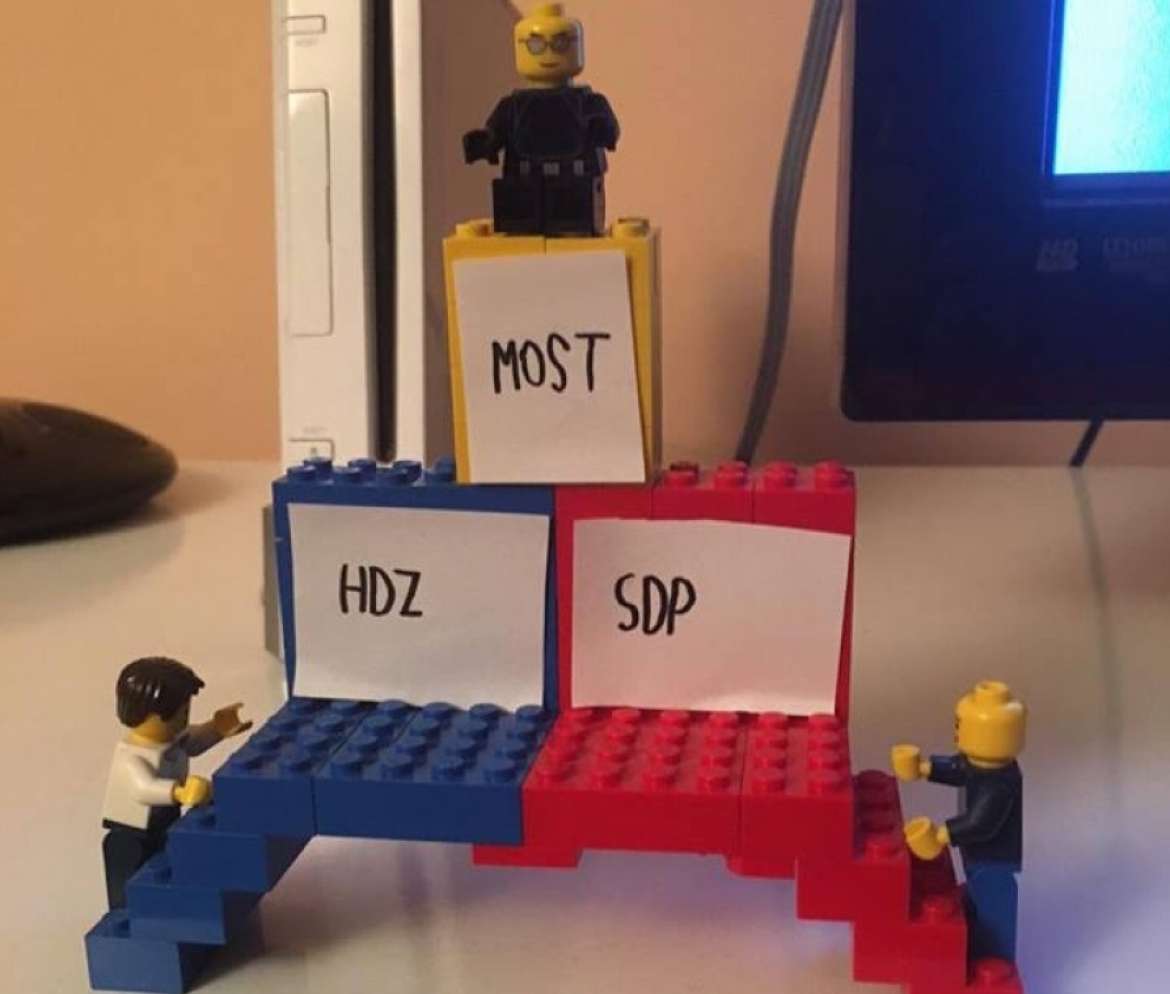
And yet...
Although I am still - and always will be - a foreigner in Croatia, I do have a bigger vested interest in the country in the form of my lovely Dalmatian wife and adorable kids. And while I respect and admire the fact that traditions and heritage have been so well preserved here over the centuries, I am beginning to wonder more and more about the healthiness of the young Croatian mindset behind this admirable protection of cultural values.
Children are not born with prejudice or hatred. Nor with a default negative mindset which sadly is the standard in the modern Croatia. But it does not take long for young and innocent kids to have their young Croatian mindset shaped for the future by events of the past.
Regular readers of TCN will know that I was a little shocked by my youngest daughter when I collected her from kindergarten as a 5-year-old. She told me that her friend Ivan was SDP and Iva was HDZ. She had no idea what either meant, but the political shaping of Croatian youth had begun. In kindergarten.
As a non-political family, I was even more shocked that my eldest aged just nine could name and recognise all the Croatian presidents, 5 prime ministers, as well as the mayors of Split, Zagreb and Jelsa. Extraordinary when you consider that the average British adult can name and recognise and know the job title of perhaps 6 politicians. And if we had lived in a political household, who knows how much of a political authority she would be.
But the politics is only part of the story.
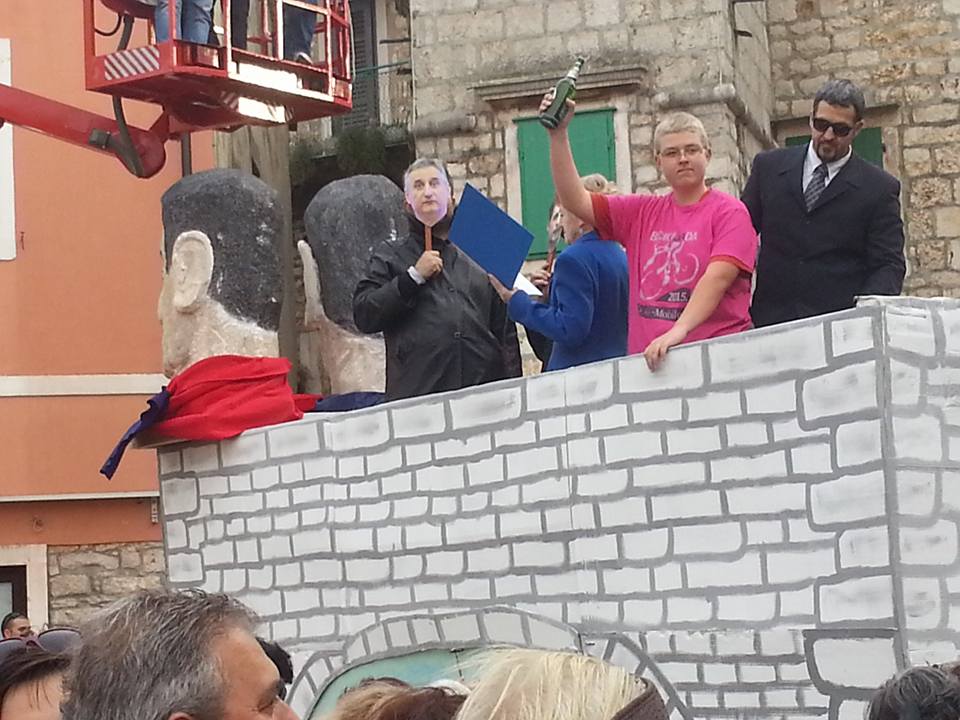
Carnival season is one of the most joyous in Croatia, a wonderfully festive occasion when locals come out to party after a long winter, as this very Catholic country prepares for Lent.
As a foreigner without much of the local language, I always took the carnival at face value, a time of community spirit and family fun. It was only a little later as I got more immersed in the way of life and spoke better Croatian that I realised just how brutal the carnival could be. And in terms of 'acceptance' in a foreign community, there is perhaps no better 'endorsement' than finding yourself with your own carnival doppelganger.
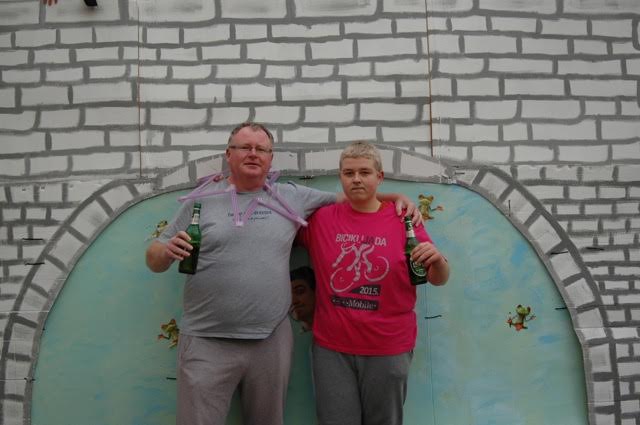
And I have to congratulate young Mili on an exceptional job well done, right down to the pink t-shirt and stylish swigging from the Lasko bottle. The only thing missing was the star around his neck that I was forced to wear.
The political sketches tended to be brutal, focused on politicians, and invariably there was the burning of one of them in an effigy as the highlight of the event. Local mayors had the chance to find out what the voters REALLY thought during some very clever and exceptionally poignant sketches. The politicians may have come out a little bruised from the experience, but it was largely good clean fun and the mayors took it in good spirit.
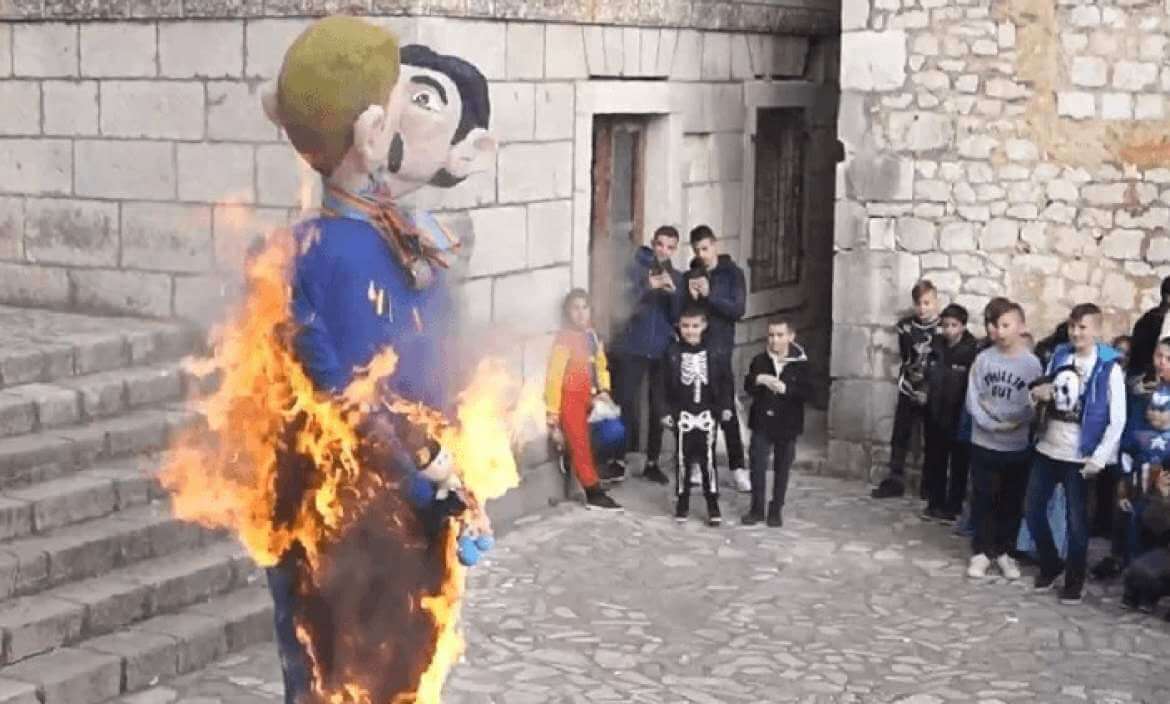
But in recent years, at least as it appears to me, there has been a subtle shift in perception in the carnival, and the focus has been less on the traditional politicians and more on individuals and issues. The one that went truly global this year, of course, was the burning of the gay couple holding a child doll of an MP with a Communist star on his forehead. While the display was roundly condemned internationally (and check out the comments on our reporting to feel how potential tourists felt), the focus of this article is on the young Croatian mindset. There were plenty of cheering kids at the burning of the gay couple, an image which will stay with them undoubtedly, and one more influence on the mindset.
One national portal shared the above video of 1935 Germany and the carnival featuring the Jews as the fall guys. Different times, and completely different scenarios, but for the young mindset? Perhaps a little less far removed.
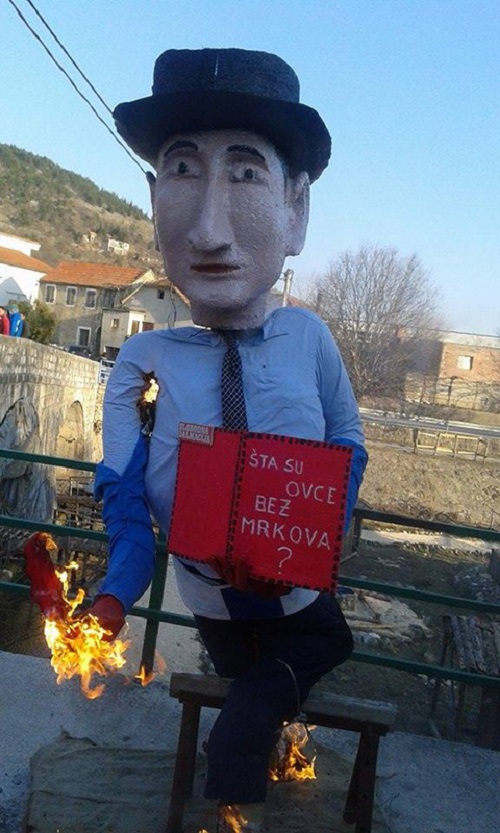
A few years ago, just a few kilometres from Imotski, it was the turn of Dalmatian journalist Ante Tomic.
The Croatian Government released a press release in the wake of the Imotski effigy:
"The tradition of burning the carnival effigy usually consisted of a sort of humorous and mocking criticism of various events in Croatian society. That sort of carnival spirit can remain within the boundaries of satire when it 'judges' someone in power like the president, the prime minister, a mayor or some other politician, but by no means those who represent various minorities in Croatian society. That is not traditional, nor entertaining nor in the spirit of Croatian and European values. As such, we condemn that act."
A condemnation which is welcome, but it does little to impact that young Croatian mindset.
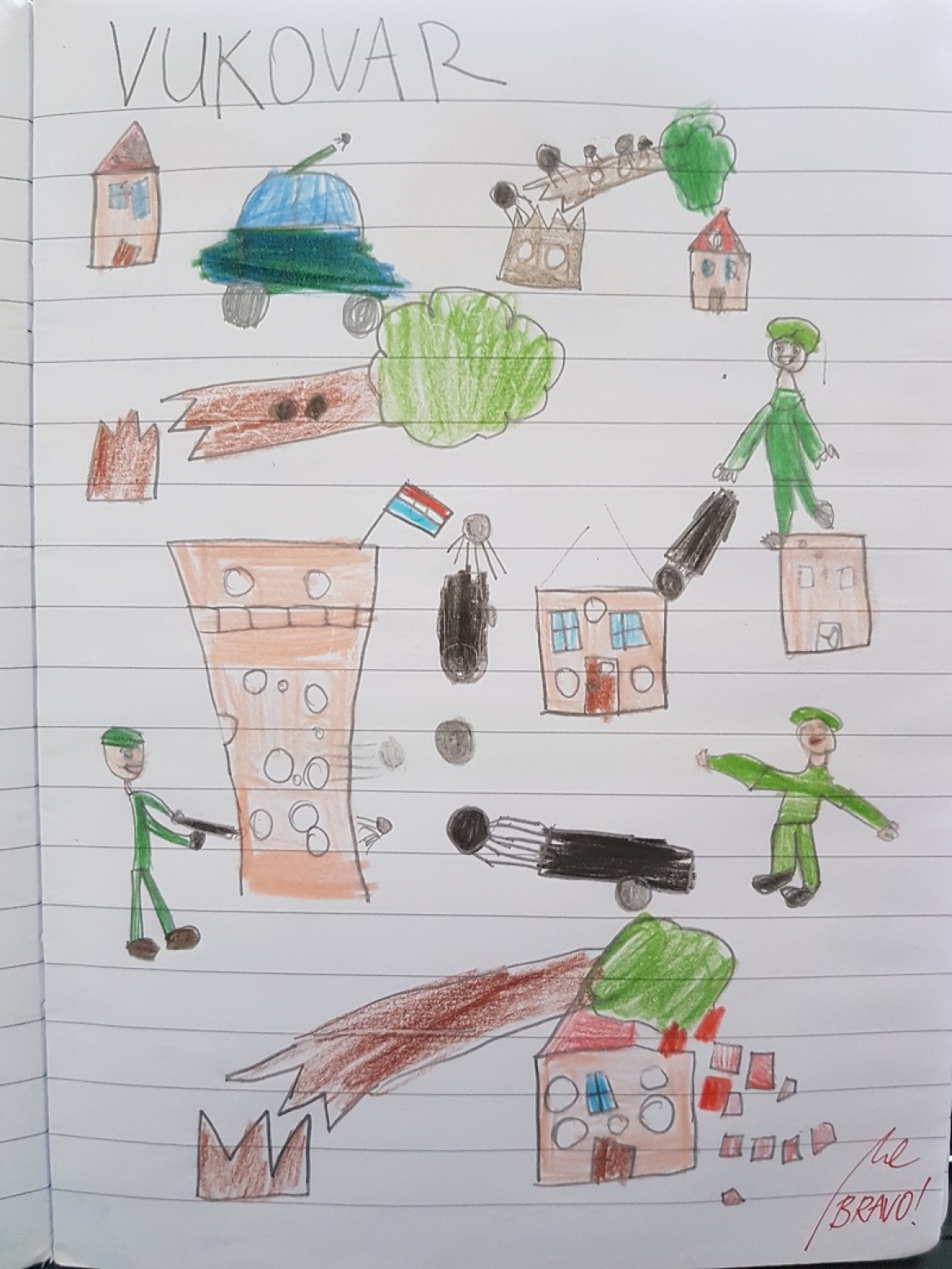
And so to one of the most sensitive topics in the Croatian psyche - Vukovar. The heroic sacrifice of the people of Vukovar is rightly remembered on a national level on November 18 each year, the anniversary of the fall of the city after its brutal siege in 1991, and it is incredibly important not only to honour and remember those who sacrificed so much so that an independent Croatia could exist, but also to teach the next generation about this vitally important part of Croatian history.
But when the time is right, and when young Croatian minds are sufficiently mature to handle the distressing details. Not at the tender age of 7.
As such, it is almost taboo to question anything about the official approach to Vukovar, something which I did not do for years until my eldest daughter came into our bedroom early one morning, aged 7, shaking and crying. I took her into the bed, kept her warm, and frantically tried to figure out what could have gotten her into such a state on the idyllic island of Hvar, in a loving family environment.
It turned out that she had had her first nightmare due to the homework she had had to do. For Vukovar Day. Aged just 7, here is the homework she presented, above (and note the 'Bravo!' from the teacher in the bottom corner).
"Some of my friends drew dead bodies, Daddy, but my teacher said we shouldn't do that."
7 years old. Another piece in the shaping of the young Croatian mindset. I was so angry at the time that I wrote Is It Really Necessary to Poison the Minds of the Next Generation? I was expecting a torrent of abuse from my faithful trolls, but not a single comment.
I am no longer religious - 9 years in a Jesuit boarding school with priests convicted for child abuse can do that to a chap - but I respect the right to religious expression, and there is no denying that the influence of the Catholic church - both benign and malign - has helped define the Croatian nation and its identity over the centuries.
In terms of shaping the young Croatian mindset, the Catholic church inserts its influence at an early age. Religious instruction, called Vjeronauk, is a major part of the curriculum from day one. I say Religious instruction, but it should be called Catholic instruction, for the focus is on all things Catholic in those important early formative mindset years. I decided not to enroll my kids in Vjeronauk, not because I am anti-religion, but because I wanted them to make their own minds up about things, having learned about all religions. Vjeronauk in those formative years focuses on one religion only - Catholicism.
Conservative traditional approaches, and they have all served to shape the Dalmatian mentality, which in turn contributes to the wonderful Dalmatian way of life that we all adore. But - at least in the humble opinion of this fat Irishman - there is a disservice being done to the youth of today with such an approach. This closed mindset is one of the factors, at least in my opinion, for the mass emigration from Croatia in recent years. I have lost count of the number of young Croats abroad who place very highly on their list of benefits of emigration as 'finally being able to breathe.'
Dalmatia I love you. You are like malaria. Once you get under the skin, you infect people for life with your beauty and lifestyle. But do take a closer look at ways to preserve your wonderful traditions while equipping your children with the tools to survive in the modern world. The world has moved on and, unless the approach to shaping the young mindset changes, so will your children too.
How to Reset the Default Croatian Online Reaction from Negative to Neutral
December 18, 2019 - Have you noticed that the default Croatian online reaction to good news from Croatia is usually negative? How to move that from negative to neutral.
Yesterday I decided to conduct a fun experiment.
Having heard recently that I never write anything positive about Croatia, ever, and that I am also a millionaire and run TCN as a hobby, I decided to write an article which has been in my head for a while called Why I Live in Croatia: 30 Incredible Discoveries in 2019 Alone.
In the article, I wanted to show what an incredible country Croatia is, Full of Experiences, and just what is possible to see and do in a 12-month period. But not from the point of view of a rich foreigner with money to burn, but through the perspective of someone living in Croatia, who had an idea and started a business here with 100 euro in his bank account. All this I explained in the article.
And the first reaction was not long in coming when I shared it on a Croatian Facebook group. A very predictable reaction and the default Croatian online reaction to anyone writing about positive experiences living in Croatia.
Zeljko stated that Croatia was a great place to live if you had lots of money, but all other people should leave as it is a terrible place to live unless you are rich.
I very rarely read comments on social media, partly due to time but also due to that default Croatian online reaction of negativity, and I almost never comment, but I decided to take young Zeljko to task just for fun, and I pointed out that he clearly had not read the article. He fired straight back, asserting his right to have his opinion, and that something along the lines that it was impossible to live well in Croatia without being very rich. While agreeing with young Zeljko's right to an opinion, I respectfully disagreed and invited him to read the article for an example of someone who did not fit his argument. Zeljko went on to read the article, then commented that his opinion had been nothing personal. I was, in fact, according to Zeljko, doing a very good job.
And then he deleted the thread.
A little later, in the comments of the same group, Kaja came on bombastically to state that Croatia was an easy place to enjoy if you were a foreigner with lots of money to throw around, very hard to live for an ordinary person trying to make ends meet. I invited young Kaja to actually read the article.
She obviously did because she then deleted her comment.
The default Croatian online reaction had gone from negative to neutral. In both cases, pre-conceived ideas were challenged by some real experiences from the present, and those experiences did not fit their narrative. Bear with me, I am getting to my point.
Another comment elsewhere highlighted our old friend, Is a foreigner allowed to have an opinion in Croatia? This is one of my favourite aspects of the Croatian mentality. Foreigners simply cannot understand the complex realities of Croatia and its society. Their observations are almost always surface and superficial, usually formed in that honeymoon period when they are intoxicated by the lifestyle and natural beauty shortly after arrival. And I agree with this up to a point, one of the reasons I wrote The 3 Stages of Learning for a Foreigner in Croatia: Love, Hate & Nirvana.
The commentator above was being dismissive of the article (without reading, default negative) because it had been written by a foreigner who had only been here a short time (in his head, it turns out from a later comment, a tourist for a year), and so it would be interesting to see this Croatia through his rose-tinted glasses a decade later. When challenged, and he realised that the article was written by a foreigner living her for 17 years, the online sentiment went from negative to neutral.
Such negativity from Croatia's army of keyboard warriors (probably a bigger number than today's half a million veterans) is as much a part of Croatian society today as supporting the football team at the World Cup. I used to think that such comments - many of which come from the diaspora - were really ignorant. And I still do, but now in a different way.
I used to think that such comments were ignorant in the sense that they were uneducated, but the longer I live here, the more I realise that they are ignorant in the sense that many people making them actually have absolutely no idea of what real life is like in Croatia today. They have been brought up with one narrative, they maybe experience their homeland once a year with a couple of weeks on the beach in the summer, and that's it. Their homeland is a corrupt country run by Communists where everything is shit, apart from the natural beauty and the country's traditions.
But there is a good reason for this ignorance.
Nobody is telling them otherwise, certainly not in English.
The comments kept coming. Some sound advice in this comment above, but it also triggered another thought in my head, which I figured out a few months ago. Where do people interested in Croatia but do not speak the language go to get their information about what is happening here? There are some websites, a few blogs, but almost exclusively, they focus on happy tourism and sport stories and what to do here on holiday, which is fine. But for people trying to understand the realities of life? There is almost nothing. There are lots of bloggers passing through with their superficial observations, but people who have lived the daily grind for years and writing openly about the good, the bad and the ugly in Croatia? It almost does not exist.
And I think it is an essential ingredient to have in the mix if we are to bring the mindset of the diaspora closer to understanding the realities of Croatia today.
Is Croatia the most corrupt country in the EU? Almost certainly.
Is it the most heavily taxed? Almost certainly.
Is it impossible to get ahead in the system without a connection? Almost certainly.
Does it offer the best lifestyle in Europe? Absolutely.
Do you have to be very rich to enjoy a good life in Croatia? It certainly helps, but absolutely not.
I actually agree with Matija Babic, owner of Croatia's largest news portal, that the best thing people can do for a better Croatia is leave and pay taxes elsewhere, so that they stop supporting the current system. Sadly, I think Croatia needs to fail to rise again. Some will say that should be achieved through lustration, so that Croatia can heal its wounds from the past, but just as I don't think everyone will leave to make Croatia fail, so I think lustration is fairly unlikely. So we are more or less stuck with the current mess, and we may as well do the best we can.
A few years ago I received an email from California from a second-generation Croat who loved his country even though he had never been. He had been following our site for a few years and was a big fan, but observed that my writing about Croatia was different to what he had learned in his community back home. And having read many articles, he realised that his perception of Croatia - hitherto exclusively shaped by his disapora community - was changing.
There are SO many good stories, and they are not being told. But you know what happens when you start to tell them, and keep telling them? People start to listen. The narrative of the reality of people living the daily grind but actually surviving and enjoying life in Croatia needs to be told more often. This isn't the story of a rich foreigner waking up and deciding what fun to have today. TCN is a Croatian business like many others, struggling to make the month VAT bill and salaries on time (doing my best guys, coming soon...).
A few years ago, a schoolfriend I had not seen for 25 years came on a sailing holiday on Hvar with his family. It was great to see him and the years rolled back, and his kids looked on in wonder as I told them about the day their dad ran away from boarding school. These days he is a partner in a major accountancy firm in the UK, has his own boat, a house with mortgage outside London, an annual train ticket into the city centre, and a salary I can only dream of. He leaves the house at 6am Monday to Friday, returning home 9 pm, and can afford fantastic holidays to places like Hvar.
A real-life parable of the billionaire and the fisherman. And, as I went to pick up my daughter from kindergarten the following week, before spending time with her on the main square over a late morning cold one, as I did every day, I realised who I would rather be.
If you are expecting to find New York salaries and Western efficiency with the idyllic Croatian lifestyle, you are going to be disappointed. Yes, Croatia does have huge problems and desperately needs a political and judicial system that works for the people of Croatia, not the people in the system. And it is easy to trash everything dismissively about life here from diaspora communities far away.
But they are totally disconnected from the realities of Croatia today. And nobody is to blame for this disconnect, because nobody is writing (certainly in English) about what is happening in Croatia today away from the traditional tourism stereotypes, so that default Croatian online negativity is understandable - the perceptions are shaped by diaspora communities.
One of the things I love about my 'job' is the access to incredible stories I get, which are untold by others (see the 30 highlights of 2019 for example). And because nobody else is writing them, I come across as a better writer than I am. I am also followed by thousands in the diaspora, some appreciative - many not so much - of my work. And although the number might be small, I know for a fact that we have changed some mindsets in the diaspora in a positive way. It doesn't bring cash, but it does bring a certain satisfaction.
What if a lot more people were to tell their stories, to show the many upsides to living here? A gentle trickle of positive and honest reporting of the realities here. It can be bad in Croatia, for sure, but it is certainly not all bad as is often portrayed.
Rather than focus on the bigger picture, I personally prefer to focus on the smaller stories which are actually the biggest stories of all. I particularly enjoyed recently writing about my visit to Tokic Croatia, the car parts sales company in Sesvete. In an age where everyone is complaining about doing business in Croatia and the lack of qualified staff. here was a 100% Croatian family business which was not only at the cutting edge of technology and building up human capital, but also named by the London Stock Exchange as one of the top 50 most innovative companies in Europe. It is an incredible story - read it here.
It is also a story that few people outside Croatian business know about. And while Tokic is an exceptional story, it is far from unique. Last week I attended a business breakfast for a small consulting company called Venatus Jones, 4 returnees with vast business experience in Australia, Germany and Canada. They have a great programme to help Croatian SME businesses to adapt and compete in the modern world, the type of grassroots initiative which will not make the news headlines (at least not immediately) but will contribute to slow but permanent positive change. In fact, the consultancy company has already played a small part in a great Croatian success story, as its first-ever client, Bagatin Clinic, was named International Plastic Surgery Clinic of the Year 2019 at the International Medical Travel Journal awards in Berlin. Another great Croatian success on the global stage.
Is it possible to succeed doing business in Croatia? Default Croatian online reaction - negative. But the reality is that yes, it IS hard, but there are SO many success stories of businesses which are succeeding.
They are just not out there for the world to know in English. And once they are, and in greater number, there will be a very slow shift in that default Croatian online response from automatic negative to something towards neutral.
Rather than fighting the keyboard warrior battles in the comfort of your bedroom thousands of miles away from the Homeland, why not enjoy six months of reality in Croatia and learn to appreciate the good, the bad and the ugly of Croatia today?
We have all three in abundance, but I still wouldn't live anywhere else.
Want to know what it is like living in Croatia? Check out the Total Croatia guide.


